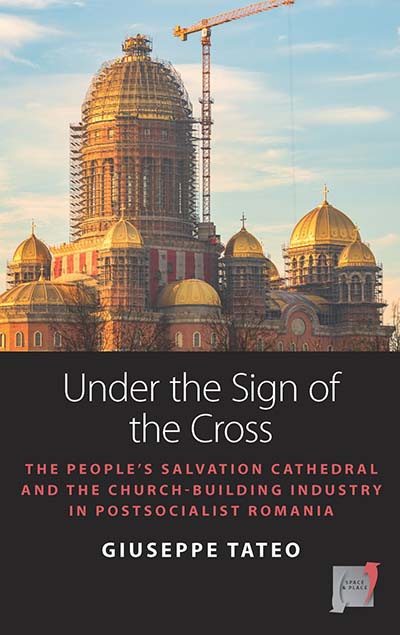“This book can be considered one of the good practice-examples of international collaboration between the emerging Romanian study of the sociology of religion and Western institutions and researchers… [It] is an important contribution to the recent history of the Romanian Orthodox Church and its current crisis in a slowly secularizing Romania… Combining the sociology of religion, space theory, cultural anthropology, and church history, Tateo’s book serves as an important example of a transdisciplinary approach in the academic study of religions in Central-Eastern Europe.” • Religion and Society in Central and Eastern Europe
“…a careful and in-depth research, also enriched by interesting references to the history of the Romanian intellectual classes, the volume puts in dialogue theories and tools of international debate with local sources and research. The work also confirms the ethnographic validity of an observation centered on material infrastructure and the exploration of social, economic and symbolic networks connected to it.” • Anuac
“This is an interesting, informative and topical book that makes a significant contribution to the anthropological literature on urban built spaces, lived religion, and post-communist Romania.” • Lavinia Stan, St. Francis Xavier University
“The book significantly advances our understanding of Orthodox Christianity and its post-socialist revival, contemporary East European society, the social life of architecture, and urban spatial symbolism and contestation.” • Christoph Brumann, Max Planck Institute for Social Anthropology
Based on extensive ethnographic research, this book delves into the thriving industry of religious infrastructure in Romania, where 4,000 Orthodox churches and cathedrals have been built in three decades. Following the construction of the world’s highest Orthodox cathedral in Bucharest, the book brings together sociological and anthropological scholarship on eastern Christianity, secularization, urban change and nationalism. Reading postsocialism through the prism of religious change, the author argues that the emergence of political, entrepreneurial and intellectual figures after 1990 has happened ‘under the sign of the cross’.
Giuseppe Tateo is postdoctoral fellow at the New Europe College of Bucharest. He specializes in the anthropology of postsocialist Romania, Eastern Christianity and urban anthropology.
LC: BR1050.R6 T38 2020
BISAC: REL084000 RELIGION/Religion, Politics & State; SOC002010 SOCIAL SCIENCE/Anthropology/Cultural & Social; REL049000 RELIGION/Christianity/Orthodox


